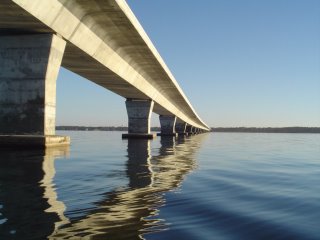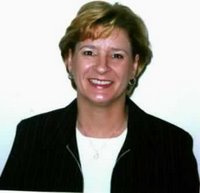Published - March, 7, 2006
Housing boom cools
No 'gloom or doom' expected in area
Carlton Proctor @PensacolaNewsJournal.com
The national housing boom may be grinding to a halt, but a collapse in sales and prices is not a serious threat to Pensacola Bay Area market, according to some local Realtors. In the last week, the Commerce Department reported that January sales of new single-family homes fell 5 percent -- the fourth decline in seven months -- and the backlog of unsold new homes hit a record. And the National Association of Realtors said used home sales slipped 2.8 percent in January, the fourth straight drop and 5 percent below January 2005. That prompted some who track the industry to declare that the five-year housing boom was over.
Auby Smith, president of the Pensacola Association of Realtors, said the local housing market is definitely showing signs of leveling off after a red-hot run following Hurricane Ivan. But Smith sees no indications that the housing bubble is about to burst.
"I would like to think we're having a leveling off in the Pensacola market," Smith said. "But I see no indication that there is any gloom and doom here or for the state of Florida." Smith said his latest data from the National Association of Realtors show sales are down 5 percent throughout the country, but sales are up 2 percent in the Sunbelt states. Locally, February 2006 sales are down slightly over the same period last year. Smith said there were 489 sales of residential homes in February last year, compared to 409 sales last month. One significant change that could impact the market is the number of homes for sale on the Multiple Listing Service for the Pensacola Bay Area. In February 2005, six months after Hurricane Ivan, there were 1,355 homes for sale in the MLS two-county area. In February of this year, that number had soared to 5,155.
Despite the spike in MLS numbers, Nan Harper, past president of the Association of Realtors, said the national predictions are "unnecessarily dire." She said in the Pensacola area, the market for homes $300,000 and below is "very, very active."
The local slowdown in sales is more of a "blip" in the market and not a "bust," she said. Moreover, the high number of homes on the MLS is due, in part, to overpriced waterfront homes not selling and the battles many homeowners are having with their insurance companies. Looking ahead, Smith said the residential housing market in Florida is strong and getting stronger because robust population growth is expected to boost the state's census to more than 20 million in 2010. One area of the local market that is experiencing a noticeable slowdown, said Smith, is the condominium market. "The higher end condo market may be a little overbuilt," he said.
New Federal Reserve Chairman Ben Bernanke said last month housing would enter a moderate slowdown but not a crash.
William Mack, a housing analyst for Standard & Poor's, predicted "a soft landing. The overall market is just taking a step back."
Explanations for the recent cooling off vary. Many people bought homes during the past five years and are staying put. Some analysts blame a decline in consumer confidence. And interest rates have been rising, especially for adjustable mortgages that allowed people to buy more expensive homes than they could have afforded with a 30-year loan.
The Associated Press contributed to this story.














